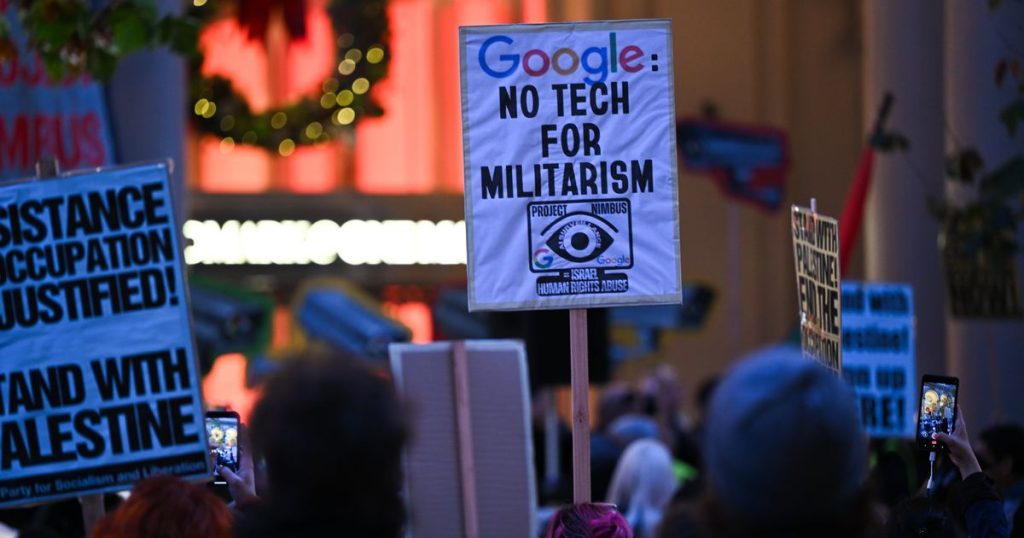Google has faced backlash over its controversial $1.2 billion cloud computing contract with Israel, with more than two dozen employees fired for protesting against the deal. The employees, organized by No Tech for Apartheid, held a sit-in at Google’s offices to protest Project Nimbus, a joint contract with Amazon to provide artificial intelligence and cloud services to the Israeli government and military. Google fired 28 employees following the protests, citing unacceptable behavior that violated company policies.
The protestors and NTFA have been critical of Project Nimbus since its inception three years ago, arguing that the contract supports Israeli violations of Palestinian rights. Criticism escalated after a Hamas attack on Israel led to a significant number of Palestinian casualties. Google has defended the contract, stating that it is not related to military work relevant to weapons or intelligence services. However, reports have emerged that Google has developed custom tools for the Israeli Ministry of Defense and has increased contracting with the IDF since the military offensive in Gaza began.
NTFA alleges that the Israeli military uses Google Photos as part of its facial recognition efforts in Gaza, leading to mass surveillance and human rights violations. The controversy around Project Nimbus intensified after an investigation revealed that the IDF uses an AI-fueled targeting system with minimal human oversight to select airstrike targets. Despite Israel’s denial of using AI to identify Hamas militants, the allegations have further fueled opposition to Google’s involvement with the Israeli military.
The firing of Google employees and resignations over Project Nimbus, including incidents at tech conferences, have highlighted the ongoing rift within the company over its contracts with Israel. NTFA has accused Google executives of being “genocide profiteers” for their role in enabling Palestinian casualties as a result of the Israeli military’s actions. The organization has called on Google leaders to drop the Project Nimbus contract and address concerns raised by employees and activists regarding the implications of supporting the Israeli government and military.
The protests and subsequent firings at Google underscore the growing pressure on tech companies to reconsider their relationships with governments involved in controversial military actions. As institutions face increased scrutiny over their business dealings with countries embroiled in conflict, employees and activists are leveraging their platforms to push for change and hold companies accountable for their roles in supporting human rights violations. The response to Google’s handling of the Project Nimbus contract highlights the complexities of navigating business interests in contentious geopolitical contexts and the importance of ethical decision-making in the tech industry.


